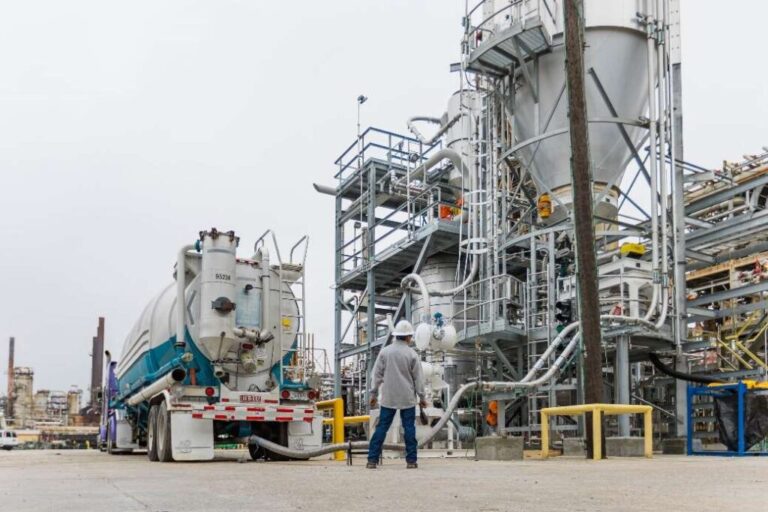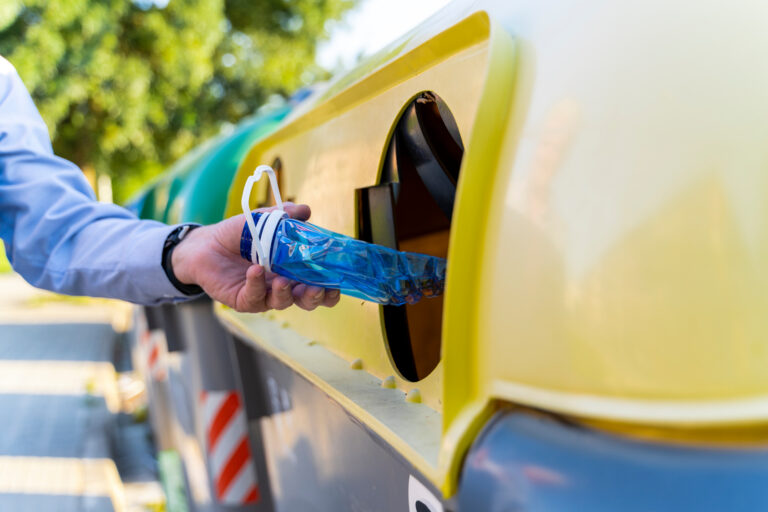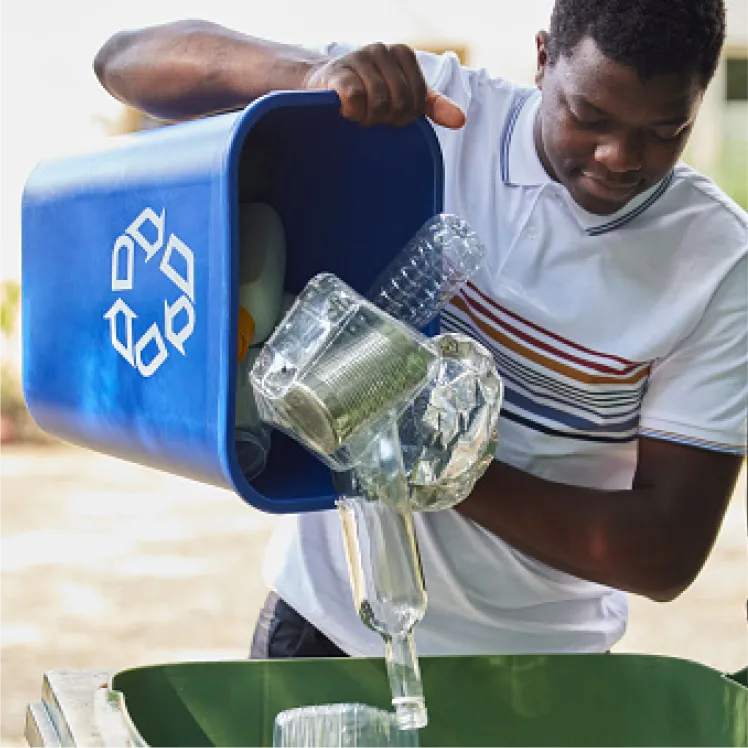
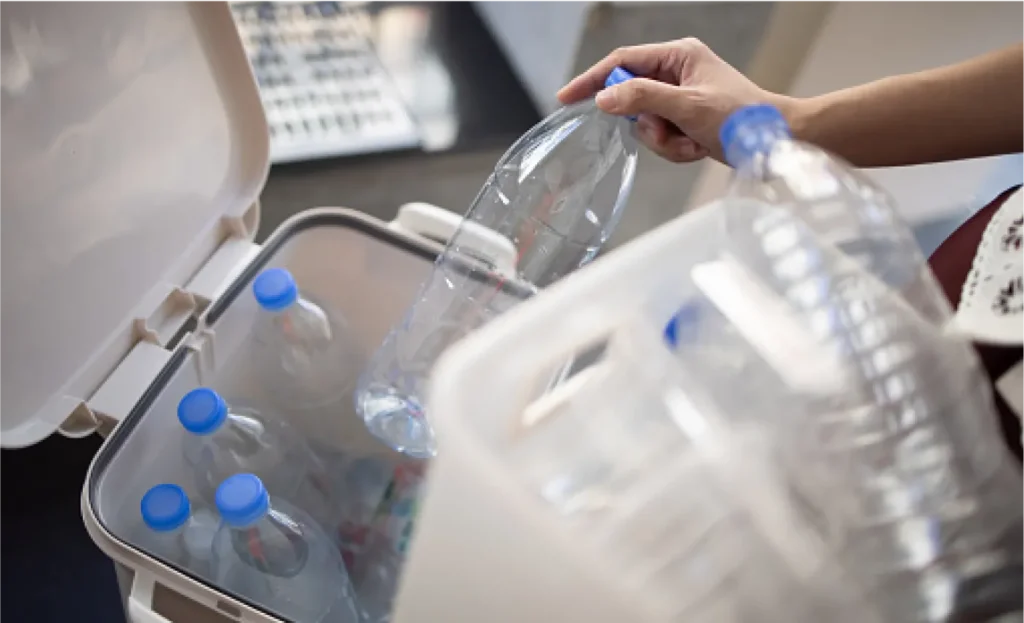
Molecular (Advanced) Recycling
Creating circularity for all packaging materials
Molecular recycling, also frequently referred to as advanced recycling, offers a new solution for more plastic packaging to be recycled and is a necessary recycling technology to achieve circularity for the consumer packaged goods (CPG) industry, which happens when the recycled product is better quality, more useful and can be used in more ways.
Companies that make the products American households use every day are urgently seeking to incorporate more post-consumer recycled content in their packaging to achieve their own ambitious plastic pollution reduction goals.
Molecular Recycling Principles
Mechanical and molecular recycling are both necessary to create circularity and principal focus areas should include:
Molecular recycling should be a viable option in improving the circularity of plastics, and processes that only produce energy / fuel should not qualify as recycling or towards meeting recycling mandates for plastics (e.g., rates and content). Incineration is not recycling.
The integration of molecular recycling technology can be complementary to mechanical recycling processes for the increased recovery of post-consumer recycled content. Molecular recycling can complement recycling for the types of materials that mechanical recycling can’t efficiently recover as raw material at a high enough quality to meet strict federal regulatory standards for consumer packaging. Mechanical recycling should be prioritized where it is a viable option.
Molecular recycling should be subject to the same environmental permitting and oversight as a manufacturing facility under federal, state, and local laws. This includes health, safety, and environmental consideration given to surrounding communities.
Quantifiable and transparent chain of custody approaches, specifically credit based mass balance, should be utilized to follow materials through the value chain and to account for recycled content based on mass balance attribution. Mass balance processes should be verified through independent 3rd party certifications which are internationally recognized and account for exclusion of byproducts.
Mechanical and molecular recycling should equally be accepted as tools in meeting legislative and regulatory requirements when the raw material output from the molecular recycling process utilized can demonstrate environmental benefits or mitigated/reduced environmental impact such as reduced greenhouse gas emissions. To include, PCR levels, recycled content targets, recycling rates, etc.
- Molecular recycling processes should be compared or measured for environmental impact specifically against the equivalent amount of raw materials production of virgin plastic materials
- Life cycle assessments in accordance with ISO 14040 are a legitimate method of quantifying environmental impact
For the purposes of environmental marketing, plastic products containing amounts of molecular recycling process outputs, excluding fuel and energy, should have a substantively similar meaning to PCR recovered through mechanical recycling processes. Above all, these technologies should be recognized as a legitimate form of recycling with outputs which can be attributed to environmental marketing claims. Credible third party certifications should be encouraged and supported.
- Mechanical recycling: The physical process of taking plastic waste and separating, washing, cutting and melting it down to create secondary raw materials that can be used in the production of new plastic items such as packaging.
- Molecular recycling: The process of converting plastic back to its basic building blocks (oligomers or monomers) or extracting polymers (without breaking them into monomers) from post-consumer plastic in order to create new plastic products or packaging. Inclusive of conversion, depolymerization, and purification technologies.
- Defined as a manufacturing process, rather than a waste management process
- Counts towards meeting recycling or recycled content rates
- Provides for upcycling and true circularity
- The outputs of these processes do not account for the generation of energy or fuel
Regulatory action must be conducive to the advancement of new technologies capable of improving upon material circularity. Restrictive or overly prescriptive guidance and regulation may inadvertently hinder the development of molecular recycling technology.
What We Do
Advocate for legislation which recognizes the viability of molecular recycling technologies as manufacturing processes.
Educate lawmakers on the fundamental role the CPG industry plays in improving plastic recycling rates and underscore the importance of molecular recycling technologies in achieving circularity.
Ensure product integrity and food safety while reducing plastic waste by championing the collaborative use of recycling technologies.
Related News & Blogs
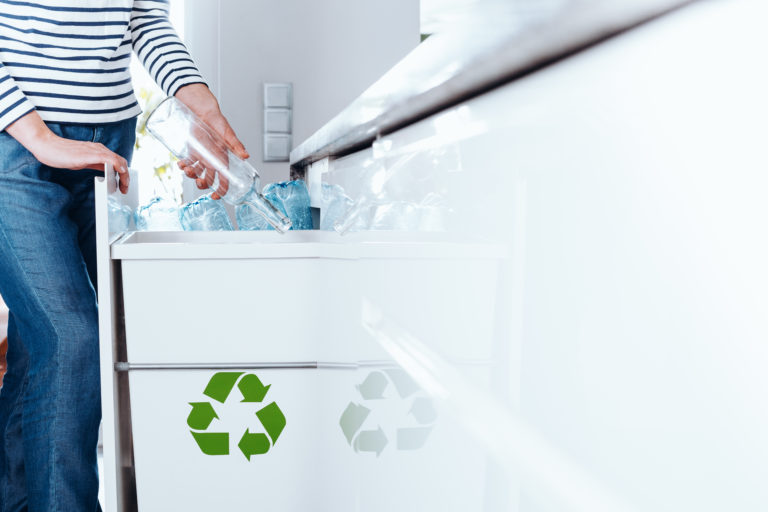
Blog
America Recycles Day: How Molecular Recycling Can Help Support Circularity Goals and Innovation

From the News
Consumer Brands SVP of Packaging and Sustainability Talks Molecular Recycling, Navigating Marketing and Recycling Instructions and More






